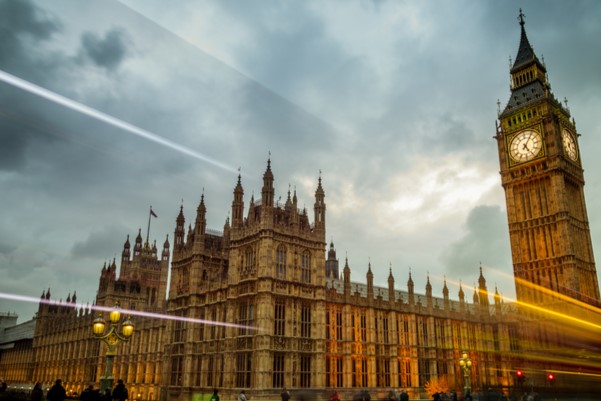NHS England must use the opportunity of its new 10-year Health Plan to ensure that counselling and psychotherapy is central to its workforce expansion to help meet mental health demand.
We’ve issued this message to policy-makers as part of our response to the NHS Change consultation, which will influence the Health Plan due to be published in spring 2025.
We’ve also highlighted the importance of counsellors in schools, funding early-intervention hubs for young people, addressing health inequalities, tackling stigma and addressing inequality in health care, and ensuring digital transformation of the NHS does not leave vulnerable people behind.
Our response has reiterated many of the calls we’ve made during our engagement with policy-makers, NHS and Government over the past few years, including in our Election Manifesto, Third Sector report and Case for School Counselling report.
Thank you to all our members who contributed to our survey sent out last month. More than 1,250 of you responded and your feedback was important in shaping our final response and recommendations.
Our response
Dr Lisa Morrison Coulthard, our Director of Policy, Professional Standards and Research, said:
“This consultation is an important opportunity to shape the future of the NHS and ensure it is fit for the future to improve the mental health of the nation.
“Counsellors and psychotherapists must be at the centre of the Government mental health plans. But the existing trained and qualified counselling workforce is underutilised in the NHS.”
Our consultation response includes the text: “As the NHS mental health workforce has evolved over the past 20 years NHS England failed to focus on how different professions, such as counselling or psychotherapy, could be recruited into the workforce to deliver new roles and meet need.
“The system has instead developed new roles that only have the skills to deliver a very specific function or role. This approach hasn’t been effective, marginalising established professions, such as counselling and psychotherapy, missing out on the expertise practitioners could bring to the NHS and creating a workforce that doesn’t have a clear progression routes or professional home.
“The Government and NHS England must urgently look at the depth of untapped talent and expertise that exists within the counselling and psychotherapy workforce that is currently outside of the NHS but which could be brought into the NHS workforce both at scale and pace. This is essential to increase access to and choice of service to support the mental health of the nation. Counselling changes lives”
Five things we want to see in the NHS 10-year Health Plan
As part of the consultation response, we've outlined five things we want to see in the NHS 10-year health plan.
These are:
1. Grow funding for mental health care in proportion to total health spending
Mental health services account for 8% of the total NHS budget, according to the National Audit Office, but only 28% of the burden of disease, the Centre for Mental Health reports.
Since 2016 the Mental Health Investment Standard has helped to protect mental health funding from cuts and to grow funding quicker than increases in baseline health spending.
However analysis by the King’s Fund found despite mental health funding increasing, it hasn’t been fast enough to keep pace with demand.
It’s critical there’s honest and open acknowledgement of how much work is needed to address the low base of funding for mental health services compared to its overall burden of ill health.
2. Tackle issue of rising demand for mental health services outpacing increase in capacity
Demand for mental health services has grown quicker than capacity.
Around two million people who reach out to mental health services in 2021 to 2022 were unable to access them, according to research by Mind.
Insufficient capacity in mental health services have led to delays in accessing care contributing to people’s mental health worsening before they’re able to access services, moving pressures upwards to more specialist services resulting in raised thresholds for accessing support, and mounting pressure on the existing services.
The Health Plan must assess and address this capacity shortage and recognise that the workforce delivering psychological therapies also includes practitioners employed by third sector organisations that directly deliver NHS Talking Therapies.
3. Offer a choice of care
It’s essential that anyone accessing mental health services has an informed choice over the type of psychological intervention they receive, when it’s delivered and who delivers it.
Failure to meet these preferences has been shown to potentially limit how successful the psychological therapy is.
NHS Talking Therapies for Anxiety and Depression programme says its services should offer a choice, yet this doesn’t happen across much of the rest of mental health services.
The Health Plan must state that choice should be available for anyone accessing mental health services.
4.Publish a revised NHS long term workforce strategy
The NHS must work with us to bring counsellors and psychotherapists into the workforce in greater numbers.
Our membership surveys consistently find that whilst 66% of our qualified members would like to work in the NHS, less than 6% currently do. Further research amongst our members found that on average they have the capacity to deliver five additional hours therapeutic work a week.
This additional capacity amounts to around 125,000 additional counselling sessions being available weekly.
This would help provide life-changing support to those in need and increase access to therapy in England.
5. Implement a cross-Government strategy on reducing health inequalities
As members of the Inequalities in Health Alliance, we support the call for a cross-government strategy to reduce health inequalities.
Tackling health inequality must not be seen as solely the responsibility of the Department of Health and Social Care or the NHS.
To prevent ill health, we need to act on the social factors of ill health such as poor housing, food quality, communities and place, employment, racism and discrimination, transport and pollution. All parts of government and public services need to act to reduce health inequalities as a priority.
Get involved
We’ve submitted our organisational consultation response.
Read NHS Change - BACP Response (342 kb)
There’s still time for people to submit individual responses to the NHS Change consultation. Visit the NHS Change website to take part before the end of January.

Welsh budget offers hope to mental health services
The budget includes a much-needed focus and investment to help tackle growing mental health waiting lists

Scottish Budget brings mixed blessings
Our thoughts following the announcement of the Scottish Government's draft budget for 2025-26

Chancellor’s Autumn Statement is a good start for improving the mental health of the nation
We welcome the Budget’s much needed investment in public services but we're concerned about the impact on third sector organisations
